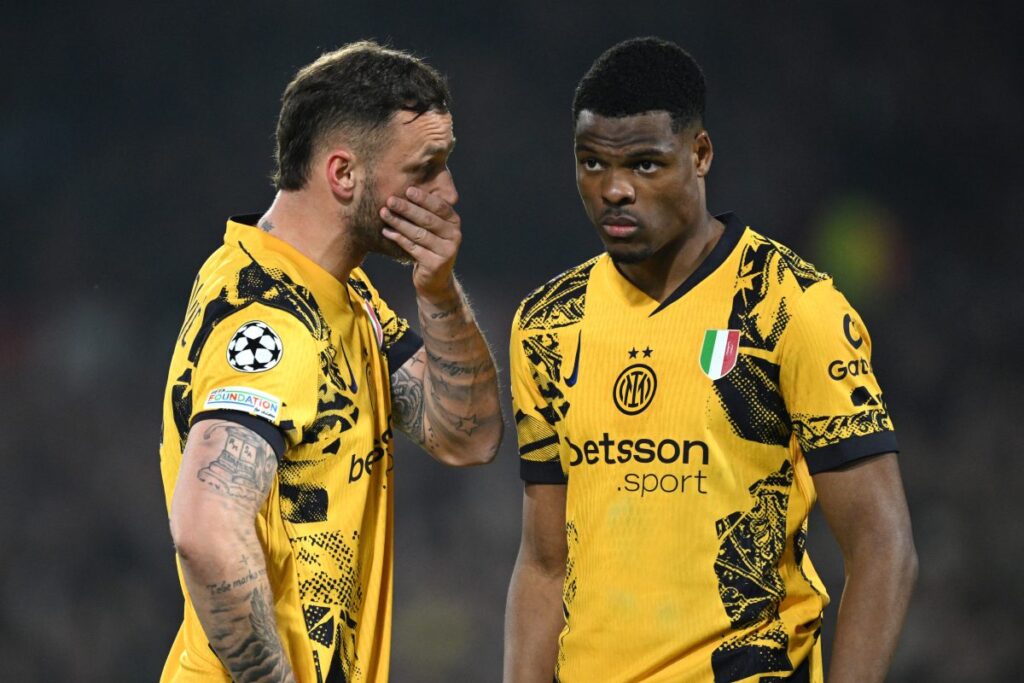They stayed just long enough to witness the trophy being lifted. Most discarded their silver medals before the pyrotechnics exploded and the Champions League trophy was raised into the warm Munich night. A flicker of applause, then with the kind of urgency that had deserted them on the pitch, they turned and disappeared down the tunnel, past a wall of photographers whose lenses were focused elsewhere.
What does it feel like to lose a Champions League final 5-0? Only this Inter team can truly know. Fans were inconsolable, crying in the stands, in the concourses, along the long road to the Métro station. For the players and thousands of supporters who had travelled with dreams in their eyes, it was a trauma that may never fully heal.
Two finals in three seasons may look admirable on paper. But when both are lost – and to clubs backed by state-owned funds – pride in the journey starts to fade. Inter’s proud history was not built on moral victories or near-misses. What unfolded in Munich was not just defeat; it was dismantling, humiliation, a public unravelling of a team’s identity on the grandest stage.
Inter’s footballing DNA – grit, pressure, bloody resistance – was shredded by something more ruthless and evolved. Paris Saint-Germain didn’t just play better football; they controlled the space between the moments. They were sharper, meaner, more intelligent. Even the dark arts were theirs: 13 fouls despite dominating the ball, relentless pressing, clever tactical fouls, psychological warfare. This was football as machine warfare, and Inter were hopelessly outdated in the face of it.
Their plan, such as it was, revolved around limiting Ousmane Dembélé’s influence when he dropped deep. So Dembélé simply adjusted, pulling wide into open space and letting his teammates create chaos around him. Paris were unpredictable, fluid, ever-changing. Inter looked rigid, tired, predictable. Their backline was exposed again and again, their midfield overrun, and their two strikers isolated and ineffective.
The first goal said it all – a right-back tapping in unchallenged from six yards. The defending was confused, disconnected. Every time Inter pushed forward, PSG punished them with swift, surgical counters. Désiré Doué repeatedly burst clear. Later, Bradley Barcola humiliated Francesco Acerbi with a dazzling run, leaving the veteran sprawled on the turf, legs tangled like a broken marionette.
Inter were outclassed in every department. Not just in technical execution or athleticism, but in imagination. They were victims of their own limitations, aged legs chasing younger shadows. Even their more youthful players are entering their prime years – but prime for what? A reset is coming, and fast.
The manager’s future hangs in the balance, but the deeper concern is the squad itself. Acerbi is 37, Sommer and Mkhitaryan are 36. The spine of the team is crumbling. The new ownership model focuses on sustainability and youth, not expensive rebuilds. The current squad’s twilight coincides with a strategic downsizing.
Inter, once giants, now find themselves dwarfed in a Champions League landscape ruled by nation states and elite commercial giants. Their fall from grace was sealed on this brutal night. What comes next is not a sequel to a golden age, but a reinvention from ruins. The game is up, and the new era begins in the cold light of one of their darkest defeats.

